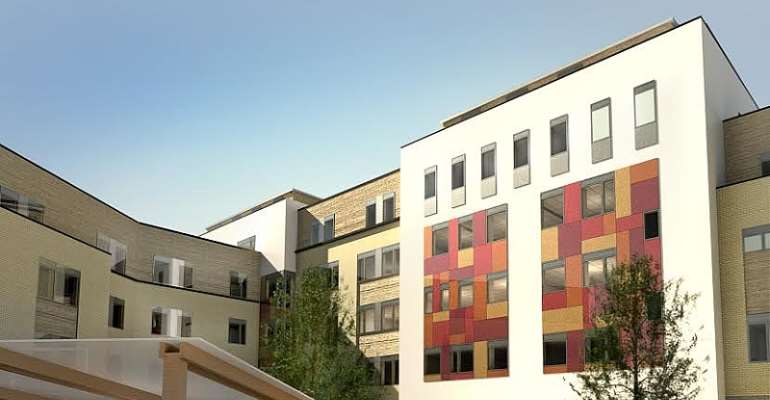What It Takes For Nigerian Students To Study In The UK

Every year, thousands of Nigerian students choose to study in the United Kingdom, the second most popular destination for international students in the world.
Nigerian parents choose the UK over other countries because of its excellent higher-education system and a number of world-class universities. Many parents believe that the UK guarantees a rich experience for international students and places them in a good position to embark on their professional careers.
They are right. Oxford, Cambridge, University College London (UCL) and Imperial College London regularly feature in the world’s top ten universities and employers around the world look favourably upon UK graduates. Graduating from a UK university provides individuals with a competitive advantage, able to compete with graduates from other top global universities. And when you study in one of the best universities in the UK, you are almost certain to be as competitive in the job market as graduates from any other top university in the world.
In Nigeria, those who have studied overseas are almost certain to have an edge over those who studied at home because of a myriad of problems and challenges in our educational system, especially our higher educational system.
It is certainly not that Nigerian students studying at home are not intelligent, the problem is the many challenges they still face at home. It’s a combination of limited access, increasing cost, decreasing quality, and inflexibility in course selection. Nigerian students sometimes end up spending seven years studying on a course that normally lasts four years because of labour issues and prolonged strikes.
In the world, only one Nigerian university was ranked among the top 800 universities, according to the Times Higher Education World University Rankings for 2015/2016. The University of Ibadan, Nigeria’s oldest university, was ranked 601st of the world’s top 800 universities in the survey.
It is because of all these challenges that Nigerian parents choose to provide their children with the best education available and send them to other countries like the UK. But sending your children abroad without the basic information and adequate preparation could prove difficult.
Most Nigerian students often complete their secondary school education with an O’Level which is not the same as the required A Levels needed to gain entry into UK’s universities. Students have to be at least 18 years old to be admitted into British Universities. Most Nigerian students complete their secondary school education at age 16 or less. They have two years to prepare for admission into the best UK universities.
Nigerian parents were advised at a media briefing in Lagos in July to send their children first to pre-university schools (colleges), such as the Abbey DLD Group of Colleges , to equip them with the required knowledge and achieve the basic entry requirements needed to study in UK universities.
At the briefing in Lagos, Charles Johnson, Director of Sales in Africa, and Muazu Jalaluddeen, Students Admissions Manager for Abbey DLD in Africa, highlighted the importance of high quality programmes in preparing students to secure a place in some of UK’s most prestigious universities.
Abbey DLD offers a number of courses suited to students’ needs, including a comprehensive GCSE and A-Level programmes as well as a number of International Foundation programmes. Muazu Jalaluddeen said the two year pre-university programme not only allows Nigerian students to pass their A Levels with flying colours, but it also helps them to understand and get used to the British education system, which is slightly different to the Nigerian system.
He stressed that gaining entry into UK’s best universities is highly competitive with only the very best achieving that feat, and that choosing the right school to prepare for university is of paramount importance.
Abbey DLD’s colleges in Cambridge, London and Manchester, he said, offer Nigerian tailored education designed to launch students on a successful and prosperous future, be this in the UK or back in Nigeria. Abbey DLD is totally committed to enabling students to achieve their full potential, going beyond achieving exams results alone.
Abbey DLD Group of Colleges, he added, “have first class reputations in the education community and in the wider employment world; reputations which grow every year with each new cohort of students.
Such statements were strongly supported by the number of Abbey DLD students who achieved high A-level results revealed on 18 August this year and are now preparing to enter prestigious universities in the UK.
Among them were many Nigerian students. In particular, Ifeoluwa Akinmoyo, who is leaving the Westminster Bridge-based college with A*A*A*A* in A-Level Chemistry, Mathematics, Physics and Economics and has secured a place to study Chemical Engineering at University College London.
She was not the only one. Ridwan Olagunju achieved A*,B,A in A-Level Mathematics, Physics and Further Mathematics and will be studying Electrical Engineering at the University of Manchester or the University of Surrey; Olumhense Itopa Joel Omonze achieved similar results and will now study Mechanical Engineering at either University of Bath or University of Nottingham; and Uchechukwu Alanza achieved exceptional grades (A, A, B, B) across four A-level subjects (most people only do three) and will not be studying Biomedical Science at The University of Sussex.
In 2016, 52% of international students achieved A-A* grades in their A levels and there was a 99% A level pass rate across the Abbey DLD Group colleges. Nigerian students achieved an outstanding 100% A*-C grades.”
It is important to understand that when considering sending your child to the UK to study after secondary school, parents must equip themselves with all the necessary knowledge to make a well researched and informed decision.
Adeola Ojo, a columnist, written from Lagos
The Nigeria Education Monitor watches Nigerian students abroad, especially in the United Kingdom and the United States. We work with schools and provide up to date reliable information.
